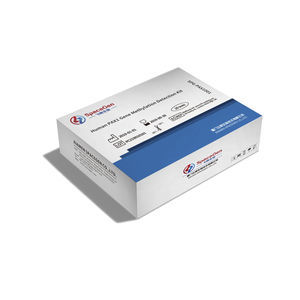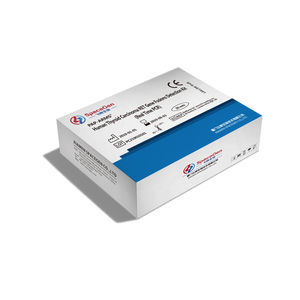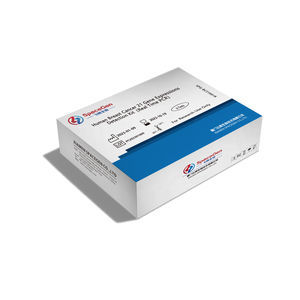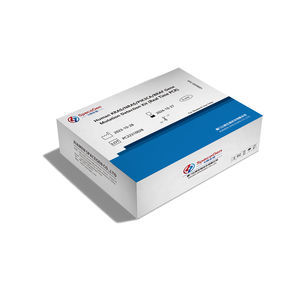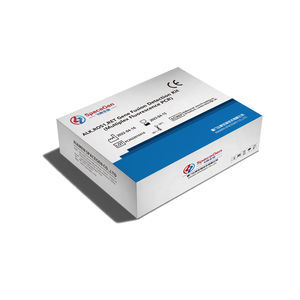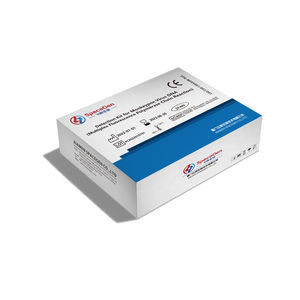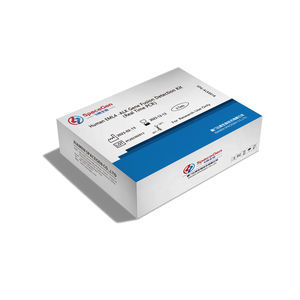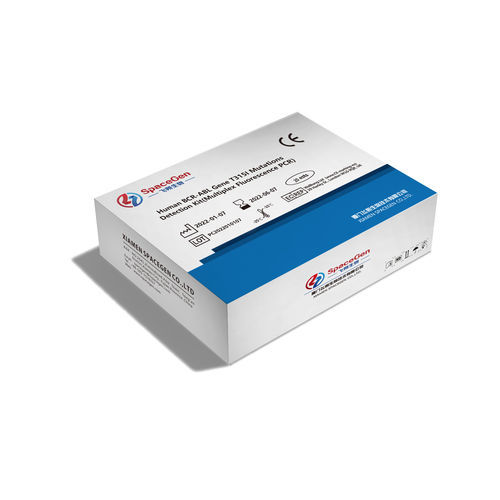

- Company
- Products
- Catalogs
- News & Trends
- Exhibitions
Leukemia detection kit PC2022010107for BCR-ABL mutationsleadclinical
Add to favorites
Compare this product
Characteristics
- Applications
- for leukemia
- Tested parameter
- for BCR-ABL mutations, lead
- Sample type
- clinical, cell
- Analysis mode
- for real-time PCR
- Result display time
90 min
Description
Chronic myeloid leukemia (CML) accounts for 15% ~ 20% of all leukemia. More than 95% of CML patients have characteristic BCR-ABL fusion genes. Imatinib (IM) is a first-line drug for the treatment of CML. With the progress of the disease course, almost all patients with CML in acute phase and 15% ~ 20% of CML relapsed after IM treatment developed resistance to IM, and the occurrence of resistance was closely related to BCR-ABL gene mutation. Among them, almost all patients with T315I point mutation were resistant to existing targeted drugs.
The guideline recommends that frequent and long-term interruption of TKI treatment and poor medication compliance of patients may lead to adverse clinical results. Patients with poor first-line TKI tolerance should replace TKI in time. Patients with T315I mutation of BCR-ABLgene are resistant to Dasatinib and Nilotinib.
BCR-ABL gene fusion: The translocation of chromosomes 9 and 22 leads to the fusion of ABL and BCR genes, and the tyrosine kinase of the BCR-ABL fusion gene releases cell proliferation signals indefinitely to promote tumor formation.
T315I mutation is caused by the substitution of threonine (THR) at position 315 of exon 6 of ABL1 gene by isoleucine (Ile), and the base is changed from ACT to ATT. After mutation, Ile315 cannot form hydrogen bond with IM, and the additional hydrocarbon bond on the substituted Ile side chain will produce spatial interference, which is not conducive to IM binding, resulting in drug resistance. Therefore, the detection result of T315I mutation of BCR-ABL gene is an important index to guide the medication of CML patients.
Catalogs
No catalogs are available for this product.
See all of SPACEGEN‘s catalogsRelated Searches
- Assay kit
- Blood assay kit
- Immunoassay assay kit
- Plasma assay kit
- Infectious disease detection kit
- Analysis software
- Molecular test kit
- Respiratory infection test kit
- Whole blood detection kit
- Optical assay kit
- Clinical assay kit
- Fluorescence assay kit
- Viewer software
- Real-time PCR test kit
- Research assay kit
- Laboratory software
- Windows software
- Laboratory detection kit
- Cell assay kit
- Oncology test kit
*Prices are pre-tax. They exclude delivery charges and customs duties and do not include additional charges for installation or activation options. Prices are indicative only and may vary by country, with changes to the cost of raw materials and exchange rates.



